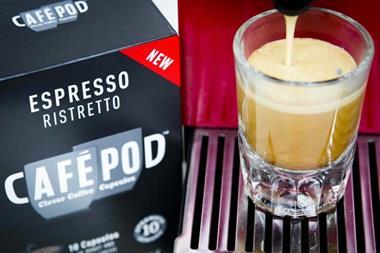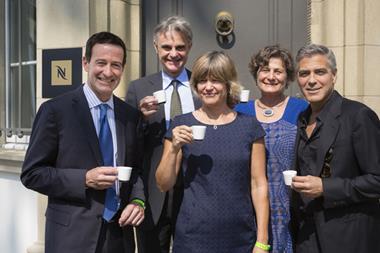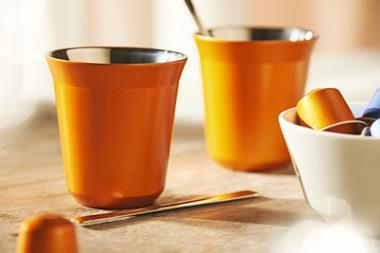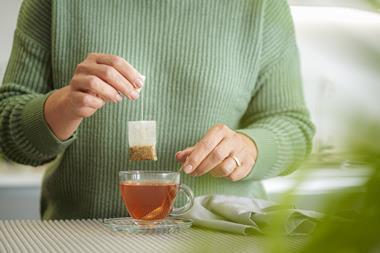A German court ruling has gone against Nestlé, but the Swiss giant is fighting on many fronts to protect its coffee cashcow
Nespresso is to coffee what apple is to electronics. It has even joined Apple on London’s glamorous Regent Street, opening a 5,000 sq ft flagship store in July that acts as a paean to its pods.
But behind the uber-chic facade, an epic legal battle is brewing, as Nestlé attempts to protect the ageing intellectual property rights on its cafe-quality coffee capsules.
Developed in the 1970s, Nespresso eschewed the traditional grocery route to market developing an ‘exclusive’ mail-order club that has grown into the fourth-biggest global coffee brand [Euromonitor], with operating profit margins that are estimated to be more than double the Nestlé average of 15%. And Nespresso isn’t just a cashcow. It grew by 20% last year to CHF3bn (£1.97bn).
But challengers are coming thick and fast. Last week, a court in Germany rejected an attempt by Nestlé to stop ex-Nespresso-head-turned-rival Jean-Paul Gaillard selling cheaper capsules for the Nespresso coffee machine. And Nestle is fighting similar cases in France, Belgium, Switzerland, the Netherlands, Spain and even the UK, where last month, Nestle filed a patent infringement case in the High Court against Dualit, which sells Nespresso-compatible pods in Harrods.
Meanwhile, new rivals keep popping up, not least in the UK, where Café Pod last week launched its new range of three Nespresso-compliant capsules at a promotional price of £2.64, immediately undercutting Nespresso’s capsules, which are priced from £3 to £3.50.
Café Pod and the prospect of other cheaper capsules turning up on supermarket shelves pose a significant threat to Nestle.
“If rivals can legally come in at a lower price in the supermarket - where Nespresso has no presence - prices are likely to come down,” says Nick Bolter, a partner at law firm Edwards Wildman Palmer.
But while these new rivals have used subtle design tweaks, as well as expiring patents (another major one expires later this year) to open up the market, they will also need deep pockets to defend themselves, as they are operating in a minefield of some 1,700 Nespresso patents, a “pharma-style situation that is almost unheard of in fmcg,” according to Bolter.
The German verdict sets an encouraging precedent for Dualit, especially as it follows a similar one last year in Switzerland, which allowed the discounter Denner to sell own-label capsules for the machine.
And in 2010 the Swiss food giant also tried - and failed - to establish a shape trademark for the Nespresso capsule. However, rules and patents vary from country to country and lawyers do not expect Nestlé to throw in the towel because of a couple of negative verdicts.
“The German case is likely to be only one chapter in continuing European litigation,” says Addleshaw Goddard legal director Rona Bar-Isaac.
Indeed, Nespresso claims it has plenty of ammunition to fight patent infringements. “New patents continue to be filed each year. So while some will expire in 2012, most will be valid for many years,” says Nespresso UK & Ireland MD Brema Drohan.
Legal battles around the brand are likely to run and run, with only one certain winner - the lawyers. But with the possibility of cheaper capsules, via the grocery channel, supermarkets and indeed consumers will also be playing close attention, too.



















No comments yet